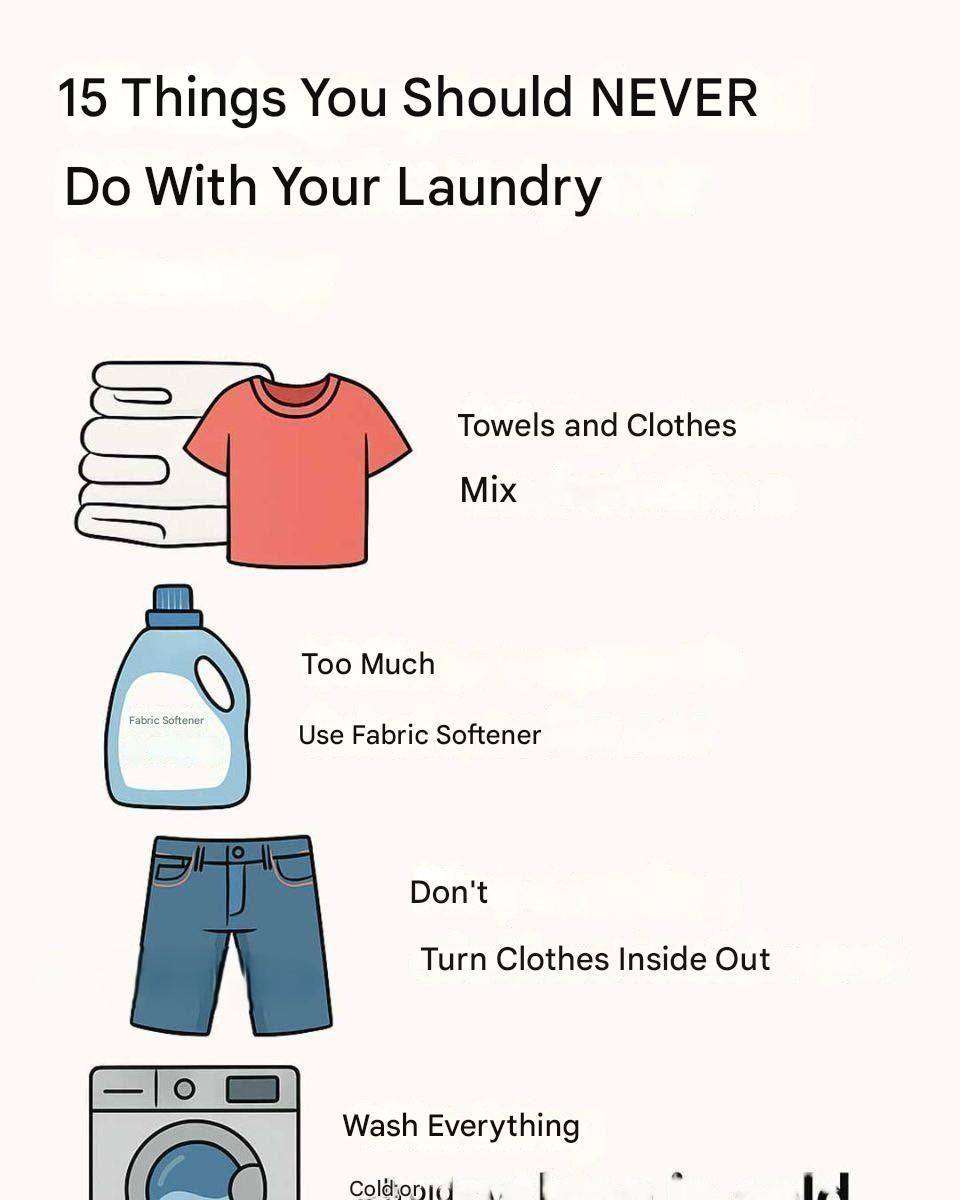ADVERTISEMENT
**Why it’s a problem:**
– Zippers can damage other clothes or get damaged themselves.
– Zippers can get caught in the washing machine and cause additional damage.
**Solution:**
– Always zip up clothes before washing them.
– For added protection, you can turn clothes inside out or place them in a mesh laundry bag.
—
### 6. **Never Use Fabric Softener on Certain Fabrics**
Fabric softeners are great for adding softness and a fresh scent to your laundry, but they’re not suitable for all fabrics. For example, fabric softeners can damage the elasticity of performance fabrics (such as activewear) and make towels less absorbent.
**Why it’s a problem:**
– Fabric softeners can cause the fibers in towels to lose their ability to absorb water.
– Performance fabrics like Lycra or Spandex can lose their moisture-wicking properties.
**Solution:**
– Avoid using fabric softener on towels, activewear, or any clothes labeled “moisture-wicking.”
– For other clothes, use fabric softener in moderation to prevent build-up.
—
### 7. **Never Wash Clothes in Hot Water (Unless Absolutely Necessary)**
While hot water can be effective at removing stains, it’s not always the best option for every load of laundry. Hot water can shrink clothes, fade colors, and even break down fabric fibers over time.
**Why it’s a problem:**
– Hot water can cause shrinkage in cotton and other fabrics.
– It can also cause fading, especially on darker colors.
**Solution:**
– Wash most clothes in cold or warm water, as this is gentler on fabrics and colors.
– Use hot water only for heavily soiled items like towels or sheets.
—
### 8. **Never Leave Wet Clothes in the Washer for Too Long**
Leaving wet clothes in the washing machine can lead to a musty smell due to mold and mildew growth. Prolonged dampness also causes fabrics to lose their freshness and may even result in irreversible damage.
**Why it’s a problem:**
– Mold and mildew can grow, causing unpleasant odors.
– Damp clothes can become more difficult to clean if left too long.
**Solution:**
– Remove clothes from the washer as soon as the cycle finishes and hang them to dry or put them in the dryer.
– If you can’t get to the laundry immediately, run the washer through another rinse cycle to get rid of excess moisture.
—
### 9. **Never Dry Clothes on High Heat (Unless Necessary)**
Drying clothes on high heat can cause fabrics to shrink, fade, or deteriorate. Delicate fabrics are especially susceptible to damage, and over-drying can cause clothes to lose their shape and texture.
**Why it’s a problem:**
– High heat can cause irreversible shrinkage in some fabrics.
– It can break down fibers, leading to quicker wear and tear.
**Solution:**
– Dry clothes on a lower heat setting or air-dry items when possible.
– Read the care labels of your clothes for drying instructions and follow them accordingly.
—
### 10. **Never Use Bleach on All Clothes**
Bleach is a powerful cleaning agent, but it’s not suitable for all fabrics and can cause damage or discoloration. Using bleach on colored or delicate fabrics can cause fading, and on synthetic fibers, it may weaken the fabric’s structure.
**Why it’s a problem:**
– Bleach can cause irreversible damage to colored fabrics.
– It can break down delicate fibers like silk, wool, and synthetics.
**Solution:**
– Use bleach only on white clothes or items that specifically recommend bleach.
– For stains on colored clothes, try an oxygen-based cleaner as a safer alternative.
For Complete Cooking STEPS Please Head On Over To Next Page Or Open button (>) and don’t forget to SHARE with your Facebook friends
